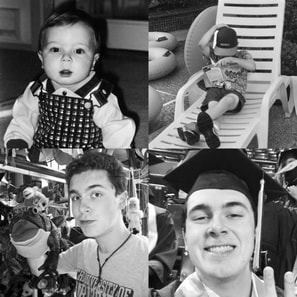
by Lonnie Pacelli
This is part two of How an Autistic Child has Changed a Career…For the Better In 2006 I wrote of Patty’s and my decision to homeschool our son Trevor to help provide a learning environment more conducive with his autism. It’s now twelve years later and time to write about how things worked out.
0 Comments
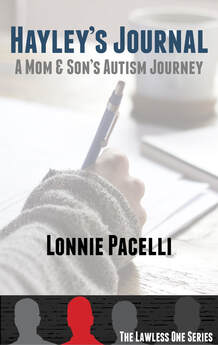 by Lonnie Pacelli My fiction book, The Lawless One and the End of Time, has four main characters who meet at age 14 in Naples, Italy and all grow into globally-recognized figures. One of the characters, Bert Winn, was fascinated with history. He loved the concreteness of historical facts; they either happened or they didn’t. He met and fell in love with Laura, a math major he met in college. He graduated college with a Ph.D. in history and became an acclaimed professor. Bert and Laura married and had a son they named JT. The Winn family became internet celebrities and millions of people subscribed to their online video blog. Subscribers loved to hear their messages of fact, inspiration, and challenge. Their message? An unvarnished, inspirational view of life with Autism Spectrum Disorder. 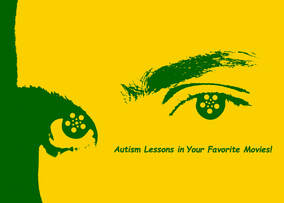
by Lonnie Pacelli
Recently our son Trevor published a blog post entitled Every Oscar Winner for Best Picture, Ranked Worst to Best. In this post, he ranks, from 90 to one, each and every Oscar winner since Wings won the very first Oscar in 1928. Each winner is listed by the movie name, year it won, a picture from the movie, and a review summary. It took him three years to watch, review and rank the movies, which he did in addition to living a full work and social life. The ranking list, whether you agree with where they fall or not, is not only a fun read but is a major achievement for Trevor. 
Guest Post by Robert Johnson
Gregory’s story began when he was 3 years old and still not aware of what life would bring. He was diagnosed with a form of autism, which changed the life of his family. The final diagnosis for Gregory was that he would never be able to speak normally, go to school, or have regular daily activities. However, his family never gave up and today Gregory has a successful woodworking business. After many battles with through medical institutions, schools, and life in general, one day Gregory found a new interest – woodworking. He met his grandma’s neighbor, Patsy, an experienced woodworker who loved it very much. They agreed to start woodworking lessons and this is how Gregory became a part of woodworking world.  Photo by Carter Sherline Photo by Carter Sherline
Guest Blog by Tracey Cohen. Originally published on The Art of Autism
“For as long as I can remember, my greatest loves, which is when I am most at peace, are running, especially outdoors, helping others and just giving back to our world if even in the smallest of ways. It was during my service as a United States Peace Corps Volunteer in 2003 that I ‘fell’ into writing, a process that partially occurs during my run. My effort to bring more awareness to the needs of the developing country I served has progressed in ways I never dreamed, including two books, numerous articles and frequent speaking opportunities all of which allow me to help and connect with others in ways never deemed possible. Fueled by the courage I muster on my run, it is my honor and privilege to inspire, educate and entertain in the challenging world we live.” – Tracey Cohen Six-Word Lessons on Female Asperger Syndrome and Six-Word Lessons on the Sport of Running  Photo by Filio Saziedes on Unsplash Photo by Filio Saziedes on Unsplash
Guest blog by Ashley Taylor of DisabledParents.org
Parents with autism spectrum disorder face so many challenges. They may have to overcome their sensory overstimulation in order to keep up with household chores or their children. People they encounter might place the burden of stigma on the parent as they misunderstand autism disorder. However, many parents find that their autism actually has some benefits. They have insight and are more empathetic toward their children when they struggle with emotions. Or they find that while they are caring for their kids they are able to “hyperfocus” on the little ones. The point is, parents with autism have struggles and strengths just like any other parent.  Photo by Pixabay.com Photo by Pixabay.com
Guest Blog by Caryl Anne Crowne of Aveanna Healthcare
Learning that your child is autistic can be a blessing. Answers to behavioral issues are finally apparent and steps that need to be taken are revealed. However, this is just the beginning of a long road to travel, not just for parents, but for siblings. Understanding this condition and how it should be managed affects an entire family.
 Photo by Pexels.com Photo by Pexels.com
Guest blog by Kathleen Carter of EducatorLabs.org
When your child’s on the autism spectrum, safety becomes your number one priority. Backyards are wonderful spaces to enjoy nature, get the wiggles out, explore, and de-stress. They also facilitate activities that improve gross and fine motor skills, problem-solving and thinking skills, and social, communication, and language skills. 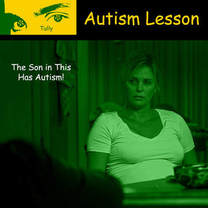 By Trevor Pacelli Autistic movie reviewer Trevor Pacelli makes some interesting points about the son in the movie being on the autism spectrum, and offers some great lessons to think about. Read more . . . |
Inspiration for Life with AutismThis blog has a variety of articles about people living life with autism, and topics and ideas that can help in the journey. Guest bloggers are welcome. Inspired by Trevor, a young adult film critic, photographer and college graduate on the autism spectrum. Categories
All
Archives
April 2024
|
Proudly powered by Weebly
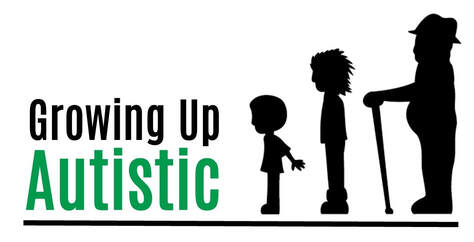
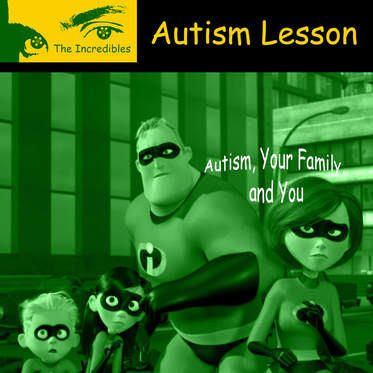
 RSS Feed
RSS Feed